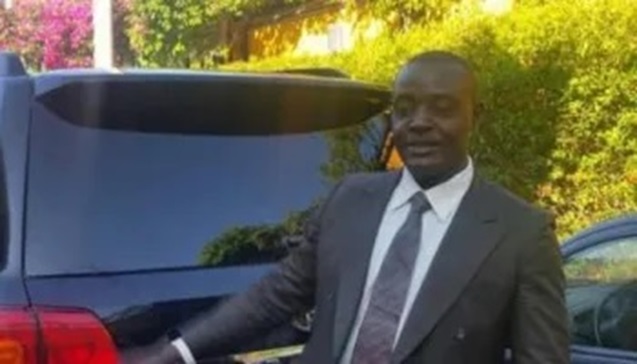PARIS, FRANCE – Kunti Kamara, the Liberian rebel leader standing trial for alleged crimes against humanity and torture in Paris, France has admitted falsifying his travel documents to leave France for Portugal.
According to New Narratives senior justice reporter Anthony Stephens covering the trial, on day two of the trial, Kamara told a court hearing his case that his goal was to eventually travel to Liberia to see his family.
Kamara whose trial began in Paris, France on Monday, October 10, 2022, was a leader of the United Liberation Movement of Liberia for Democracy (ULIMO), an armed group opposed to former Liberian president Charles Taylor. He is accused of human rights abuses in the northwest of the country over a five-year period from 1992 to 1997.
Liberia’s first civil war was marked by war crimes and widespread, systematic human rights violations, including profound and disturbing patterns of violence against civilians, as warring factions massacred and raped civilians, pillaged, and forced children to kill and fight.
A French investigating judge collected numerous incriminating testimonies. Kamara, however, denies the allegations.
“Since the start, Mr. Kunti Kamara has indicated that he has nothing to do with these events, that he is not involved in the crimes he’s accused of,” said Marilyne Secci, the defendant’s lawyer. “He’s said from the start that he’s a ULIMO soldier, but at no time did he commit acts of torture or crimes against civilians.”
Ahead of Kunti’s trial, Elise Keppler, associate international justice director at Human Rights Watch said: “This trial is an important step for justice for victims amid the failure of Liberian authorities to hold to account those responsible for serious crimes during the civil wars.”
Keppler continued: “Liberian authorities should take note: these crimes can and should be prosecuted, and a long-recommended war crimes court should be established in-country without delay.”
The organization Civitas Maxima filed a criminal complaint in France against Kunti Kamara in 2018, following which he was arrested in Paris on suspicion of crimes against humanity and torture. Ahead of the trial, Human Rights Watch and FIDH published a question-and-answer document with information on the accused, Kunti Kamara.
Kunti Kamara’s trial in France is possible because the country’s laws recognize universal jurisdiction over the most serious crimes under international law. Universal jurisdiction allows for investigating and prosecuting these crimes no matter where they were committed, regardless of the nationality of the suspects or victims. This, and other universal jurisdiction cases in Europe and the US on Liberian civil wars-era crimes, have been the only chance so far for Liberian victims to see justice done.
The use of universal jurisdiction in France is, however, restricted by multiple legal barriers, the groups said. A recent decision of France’s highest court on a Syrian crime against humanity case annulled, on the basis of one of these limitations, the indictment of an alleged former Syrian agent who had sought asylum in France, raising concerns that the country could become a safe haven for those responsible for serious crimes.
“France’s trial for atrocities in Liberia reinforces the importance of the principle of universal jurisdiction to ensure that the worst crimes do not go unpunished, especially where accountability is not taking place through other avenues,” said Clémence Bectarte, a lawyer who coordinates FIDH’s Litigation Action Group. “France’s laws need reform to ensure justice can be a reality for more victims of the worst crimes, and the country is not as a safe haven for perpetrators.”
The trial is set to last several weeks. If Kamara is found guilty, he could face life in prison.







